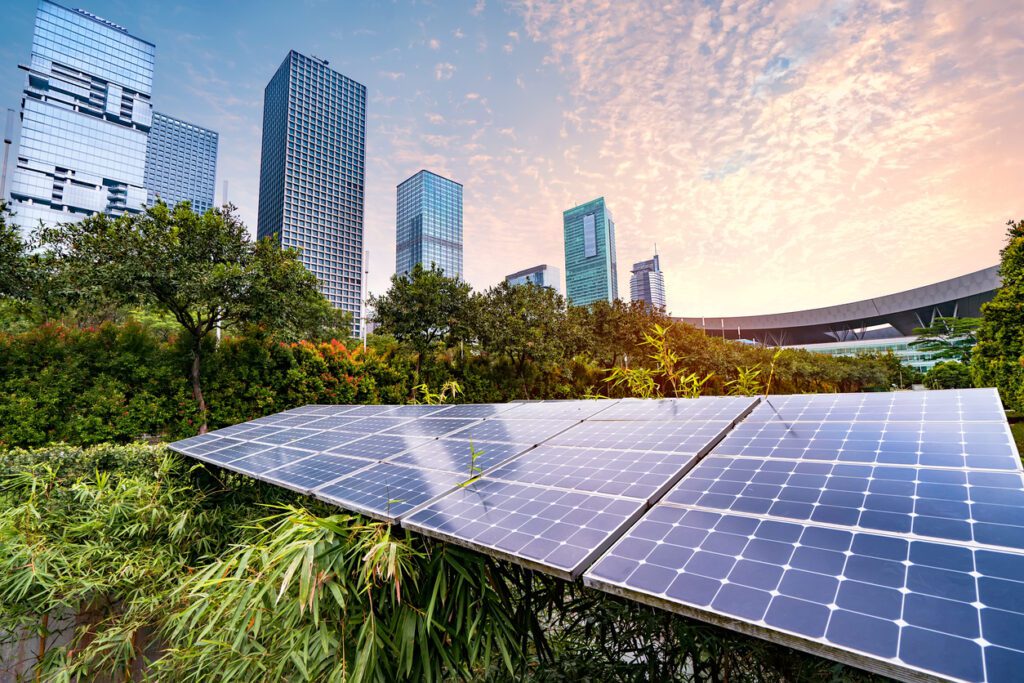5 Reasons Why You Should Do Business in the Philippines (2024)

Are you planning to start a business in the Philippines? You’re in luck. Recent economic trends in the country may prove favorable for you.
Philippine gross domestic product grew by 5.7% year-on-year in Q1 2024, according to the Philippine Statistics Authority (PSA). That figure is just a tad below the government’s 6% to 7% growth target.
Sustaining that growth momentum appears to be going well mid 2024. Industry observers are looking forward to as much as 5.9% growth in Q2, with roughly similar numbers throughout the rest of the year.
And with a resilient economy comes business opportunities, for both local and foreign entrepreneurs eyeing the Philippines.
Let’s dive into five salient trends that can buoy your business venture in the months ahead.
Content summary:
🎯High employment and sustained consumer spending are boosting the Philippine economy.
🎯Sectors like IT-BPO, financial services, manufacturing, and transportation are performing well.
🎯Sustainability is increasingly a key priority among consumers — which can unlock new avenues for growth.
🎯Contravening trends to closely observe are persistent inflation, fears around generative artificial intelligence, and international conflicts.
1. Employment rate stays high, helping maintain economic activity
Both unemployment and underemployment have gone down since 2023. According to PSA data, the number of employed Filipinos increased by about 600,000 from May 2023 to May 2024 — which translates to an overall employment rate of nearly 96%. Meanwhile, the 9.9% underemployment rate recorded last May is the lowest since 2005.
Many of the jobs generated come from the construction, manufacturing, and IT-BPO sectors. The latter sector, in particular, continues to be a key economic driver as it generated 1.5 million jobs US$35.5 billion in revenue last year. There’s no sign that this upward trend will stop anytime soon as more companies look to outsource their business processes to the Philippines.
With relatively stable employment numbers, consumer spending is giving a much-needed boost in the post-pandemic era. And with increasing revenue comes further investments in key areas of the economy.
2. Digital financial services and unsecured lending are booming
Apart from strong employment numbers, consumer spending is also being driven by improved access to financing — thanks to the expansion of digital financial services and unsecured lending. Just pay a visit to your neighborhood sari-sari store, where you’ll typically find a GCash or Paymaya payment option.
A report from management consulting firm, McKinsey, cites these two factors as the catalyst for a potential 5% growth in the local financial services sector by the end of 2024.
In 2023, 60% of Filipino adults with a mobile device and internet access performed at least one digital financial transaction. And that figure is only going up, providing fertile ground for the further expansion of mobile banking, e-commerce platforms, and digital payment apps.
The growing popularity of “buy now, pay later” programs is one clear example of the boom in unsecured lending. People who have traditionally lacked access to formal lines of credit from banks now have alternative ways to spend and potentially build up their credit history.
Unsecured lending also gives people a bit more leeway to handle larger expenses like college tuition fees, hospital bills, and even capital for business startup.
3. A flourishing e-commerce sector presents opportunities for online-savvy businesses
The convenience of online shopping and demand for greater product variety are encouraging businesses to digitize some or all aspects of their operations. According to a Philippine consumer survey in 2023 by McKinsey, approximately 80% of respondents use online channels to make purchases.
Additionally, the ease of doing business online opens up new opportunities to address unmet market needs. Aspiring entrepreneurs would do well to thoroughly explore a product/service niche that’s within their expertise.
💡Looking for business registration support in the Philippines?
Registering a business is a key step in any entrepreneur’s journey. You’ll need to get the required permits from the Department of Trade and Industry, Securities and Exchange Commission, Bureau of Internal Revenue, local government unit, and other relevant agencies. But you don’t have to go through all that hassle alone.
Loft offers business registration and other corporate compliance services to help startups in the Philippines. For existing business owners, the Loft Team also offers business renewal services.
Navigate the local regulatory environment with ease, from securing business permits to changing your business address. Send us an email at [email protected] or call us at +63-917-899-1111. You can also make an inquiry through this contact form.
4. Sustainability ranks high among consumers’ concerns
The increasing preference for eco-friendly products and services is another important economic driver that shouldn’t be underestimated. According to McKinsey, sustainability-related issues were among the top concerns among Filipino consumers — second only to inflation (more on this later).
Businesses that can innovate and lessen their environmental impact stand to benefit in the long-term. Higher capital and production costs will likely be speed bumps along the way, but with the right business model and investment mix, there’s promising potential for growth.

5. Continued digitization in IT-BPO and manufacturing is accelerating growth
New technology solutions are helping companies in key sectors increase efficiency.
Industry observers see a continued adoption of a hybrid work model among local BPOs. Key reasons for this push include business continuity (especially during natural calamities like flooding and earthquakes), greater employee satisfaction, and access to a larger talent pool.
With a significant contribution to the Philippine economy (19% in 2022), the manufacturing sector is also ramping up its adoption of digital solutions. Applying new technologies and re-skilling workers will help the sector produce more hi-tech and high-value products.
3 Trends that may dampen business optimism in 2024
That all said, the overall economic outlook isn’t all sunny. Below are some key trends you should take into account before deciding on a definite course of action.
Inflation persists in the background
While the inflation rate slowed down from 3.9% in May to 3.7% in June, consumers are still very price conscious. McKinsey’s best-case scenario is for the rate to settle around the ballpark of 3% by the end of 2024. On the other hand, if price control policies don’t create their intended effect, inflation could theoretically hit the 5% mark. In his third State of the Nation Address (SONA), President Ferdinand “Bongbong” Marcos Jr., acknowledged the problem and vowed to take further steps to tame inflation. One of the measures he highlighted was the suspension of pass-thru fees for goods and merchandise at the local government level.
Unemployment fears due to artificial intelligence (AI)
Despite the fact that employment has remained high, people are wary of job security amidst the rise of generative AI. Companies are experimenting with this disruptive technology and have already laid off portions of their workforce. However, many pundits and early adopters of the technology recognize it’s still far from perfect — as basic inaccuracies and AI hallucinations remain prevalent.
Geopolitical situation in Ukraine and the West Philippine Sea
International conflict, whether existing or potentially looming, is another key concern among consumers and economic analysts. The war in Ukraine is disrupting the supply chains of many basic commodities, fueling further inflationary pressures across the world — not just in the Philippines. Closer to home, tensions in the West Philippine Sea are making many companies and investors jittery as well. During his SONA 2024 speech, President Marcos Jr. reiterated his commitment to assert Philippine sovereignty while de-escalating tensions with China in contested areas.
Grow your business venture with Loft
Things are looking up for anyone looking to start a business in the Philippines. A combination of robust job generation and innovation in key sectors are boosting growth opportunities. If all goes well, the Philippines is on track to become an upper middle income country by 2025, according to National Economic and Development Authority Secretary, Arsenio Balicasan.
However, persistent concerns around inflation, job security vis-à-vis AI, and international conflicts will require entrepreneurs to get creative and remain resilient.
Loft’s in-house team of business and corporate compliance experts help you stay on track with regulatory requirements — so you can focus on business innovation and growth.
You may complete the short form below to get in touch with our team.